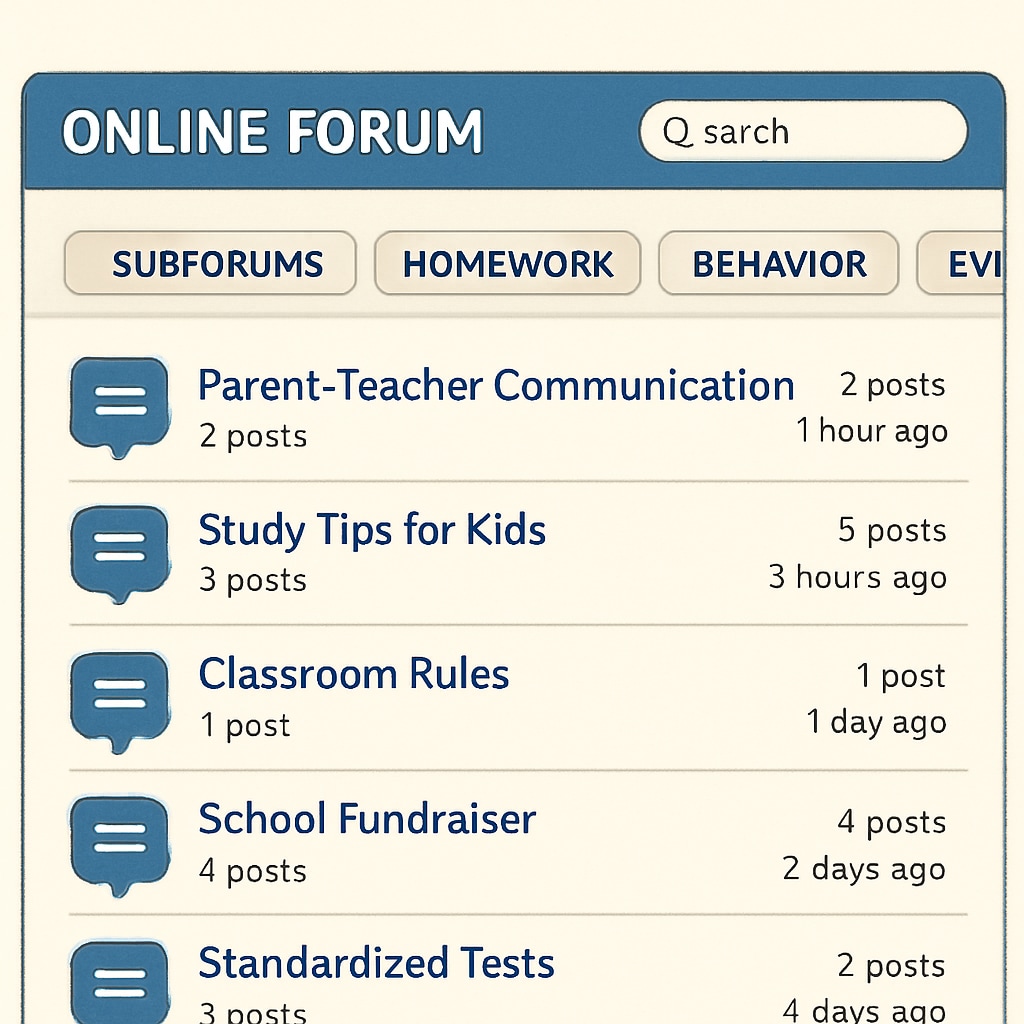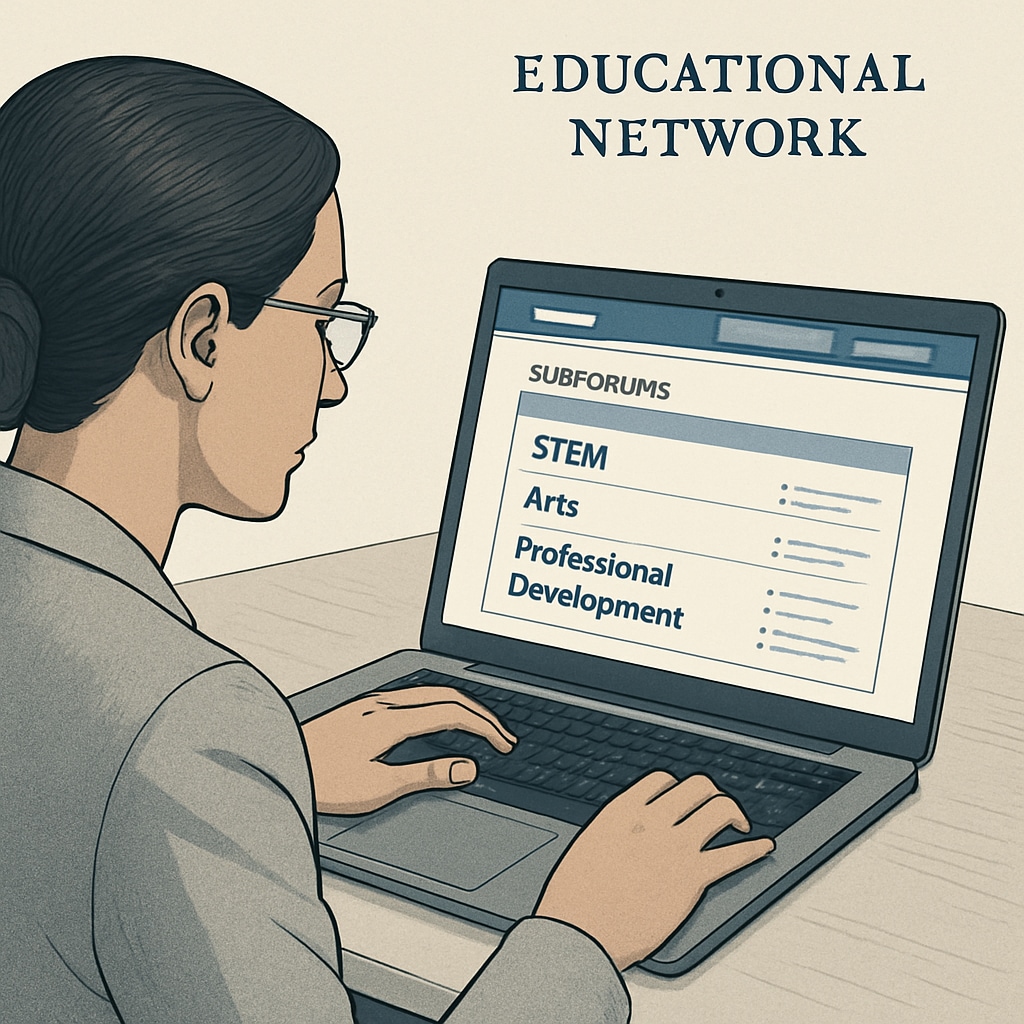The rise of online platforms has transformed the educational landscape, offering K12 teachers and parents a wealth of resources to enhance learning and teaching. By adhering to essential community rules, educational networks, and subforums, these platforms have become well-organized hubs for idea exchange, professional development, and classroom innovation. In this article, we’ll explore what makes these educational communities effective, how to navigate them efficiently, and why they are indispensable for modern educators and parents.

How Community Rules Ensure a Constructive Environment
Community rules lay the foundation for respectful and productive interactions within online educational spaces. These guidelines are not mere formalities but essential for maintaining a safe, inclusive, and focused atmosphere for users. For example, platforms like r/Education on Reddit enforce clear rules against spam, harassment, and off-topic posts. This ensures that discussions remain relevant and helpful.
Here are some common community rules that make these platforms effective:
- No harassment or abusive behavior: Encourages a welcoming environment for diverse opinions and experiences.
- No promotional content: Prevents the forum from becoming cluttered with advertisements, keeping it resource-focused.
- Stay on-topic: Ensures that discussions remain relevant to education, saving users time and effort in finding meaningful content.
By enforcing these rules, online educational communities foster a sense of trust and collaboration among their members, making them reliable spaces for resource sharing and professional growth.
Exploring Educational Networks: A Resource Goldmine
Educational networks act as bridges between educators, parents, and experts, offering a treasure trove of resources for K12 stakeholders. These platforms often include categorized subforums that make it easy to find resources tailored to specific needs. For instance, a subforum might focus on STEM education, while another might provide strategies for supporting students with learning disabilities.
Some benefits of joining educational networks include:
- Access to lesson plans and teaching guides: Many platforms offer free or low-cost resources shared by experienced educators.
- Professional development opportunities: Webinars, workshops, and peer mentoring programs are often advertised in these communities.
- Parent-focused resources: Parents can find tips on supporting their child’s learning journey, from homework help to social-emotional development.
For example, websites like Edutopia provide curated articles, videos, and tools to inspire educators and parents alike. Similarly, specialized Reddit subforums like r/Teachers and r/Parenting offer niche discussions and advice for their respective audiences.

Maximizing the Benefits of Subforums
Subforums, or topic-specific discussion boards, are one of the most valuable features of educational networks. They allow users to dive deep into particular areas of interest without sifting through unrelated content. For example, a subforum dedicated to K12 science education might include threads on lab experiment ideas, science fair preparations, or effective ways to teach complex scientific concepts.
Here are some tips to make the most of subforums:
- Use search functions: Most forums let you search for specific topics, saving time and effort.
- Engage actively: By asking and answering questions, you contribute to the community while learning from others.
- Follow popular threads: Threads with high engagement often offer the most reliable insights and resources.
Subforums also encourage collaboration among educators from different parts of the world, introducing diverse perspectives that can spark new teaching strategies and ideas.
The Impact of Educational Communities on K12 Practices
Online educational communities are not just about resource sharing; they also play a crucial role in shaping modern educational practices. Teachers often use these platforms to share success stories, discuss challenges, and brainstorm solutions with their peers. Parents, on the other hand, gain insights into the latest educational trends and how to actively participate in their children’s learning.
As a result, these communities have a cascading effect on education. Teachers empowered with new strategies bring more engaging and effective lessons to their classrooms. Parents armed with better resources can support their children more effectively. Together, these efforts contribute to a richer, more collaborative learning environment for students.
In conclusion, platforms that adhere to robust community rules, leverage educational networks, and organize content into subforums are transforming the way K12 education stakeholders interact and grow. By actively participating in these spaces, educators and parents alike can unlock a wealth of opportunities for innovation and professional development.
Readability guidance: This article uses concise paragraphs, clear transitions, and bullet points to enhance readability. Subheadings help readers quickly navigate through the content. Active voice and accessible language make the text engaging and easy to follow.


